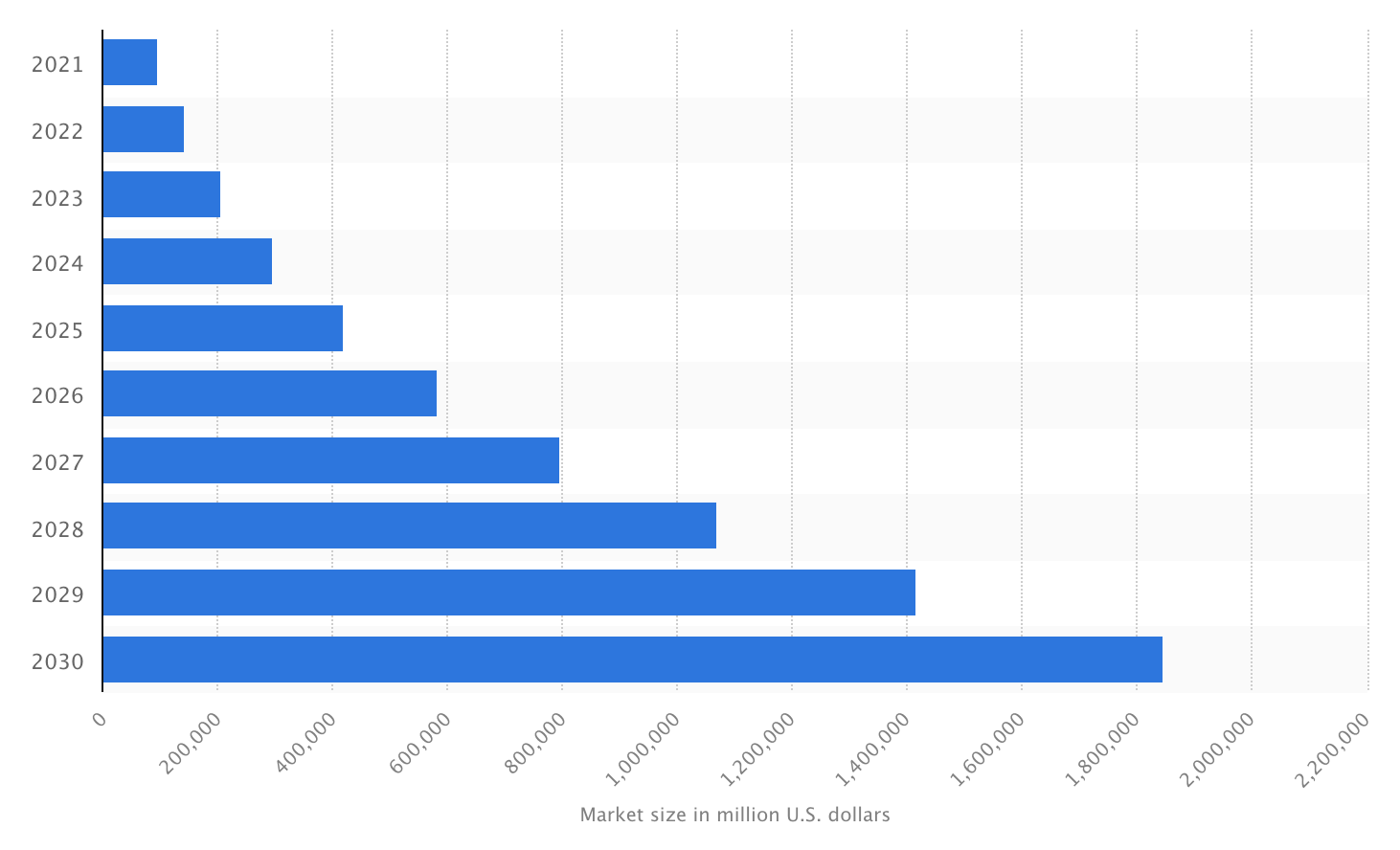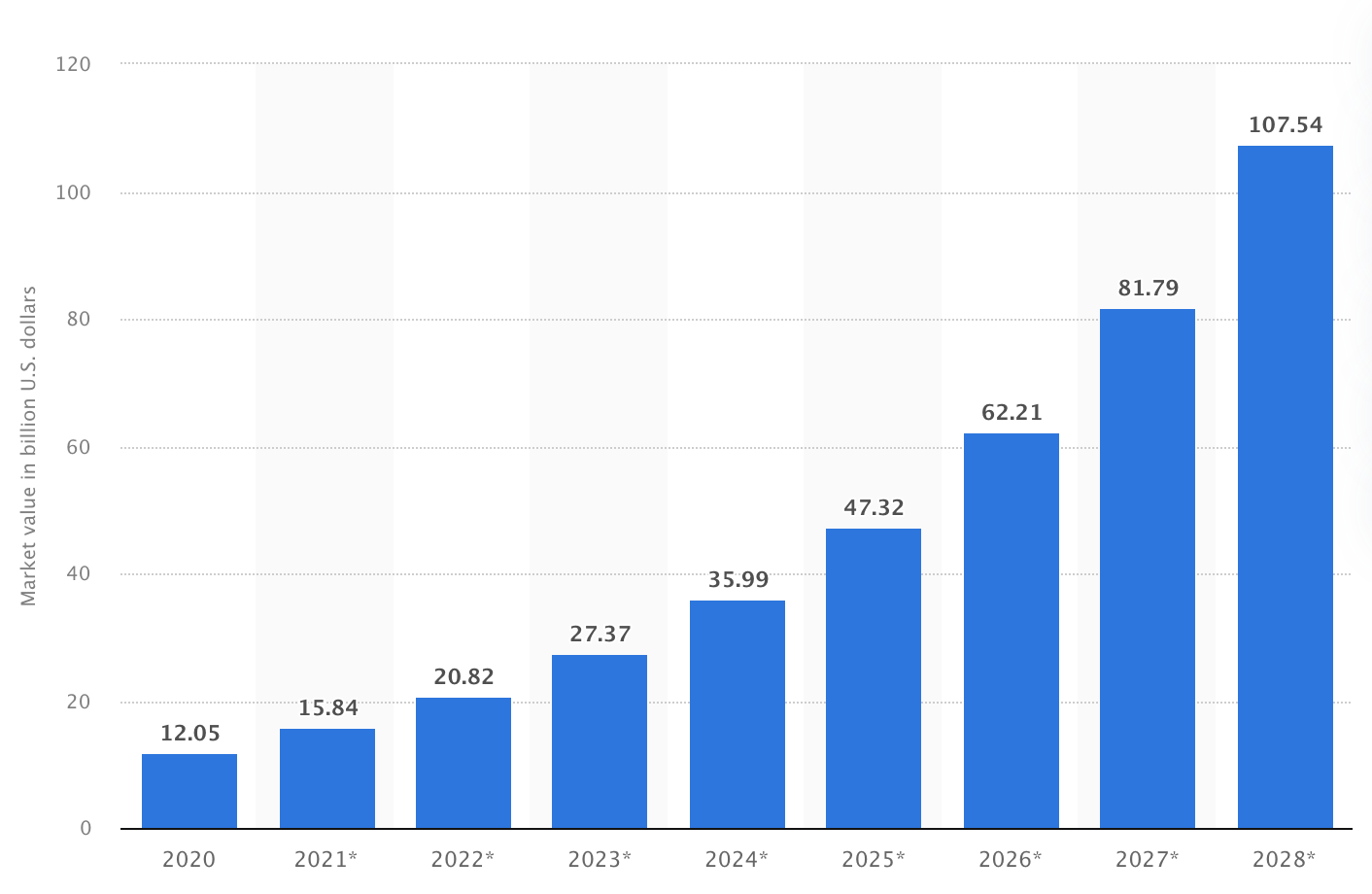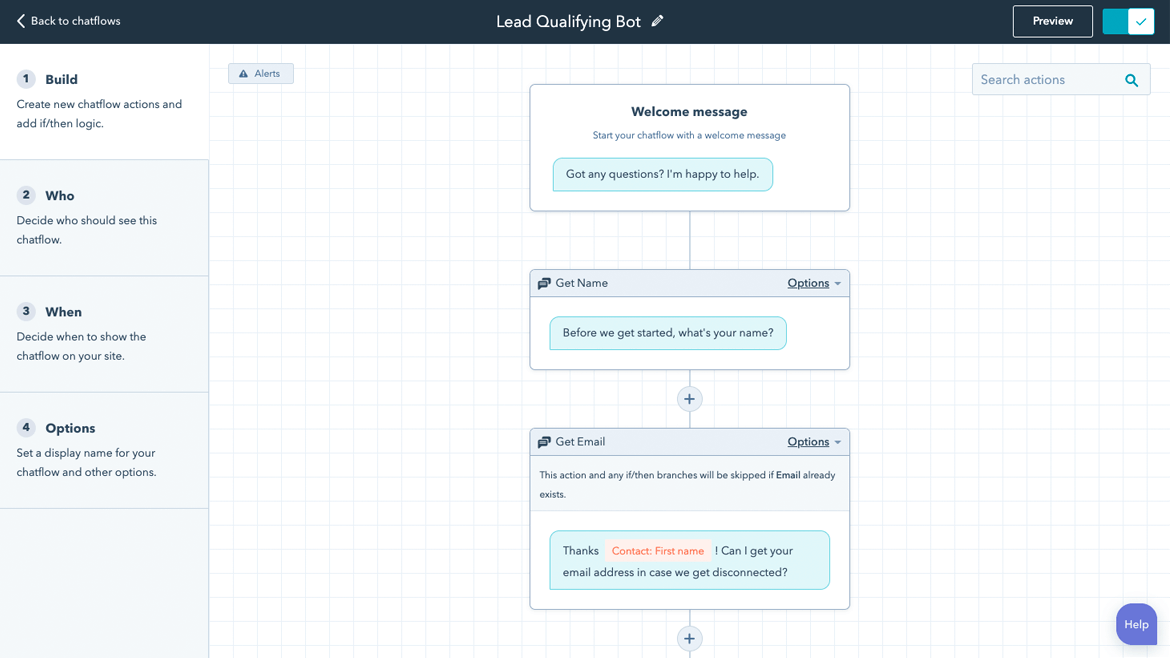The world of artificial intelligence and machine learning is expanding, and marketers should pay attention. AI is being implemented in nearly every industry to improve business processes, and the data surrounding this tech are staggering.
To help you better grasp AI's most recent advancements, we've compiled a list of interesting AI statistics to consider before you use it for your own company strategy. And if you're in a pinch, jump straight to the section that you need.
- Interesting AI Statistics
- AI Adoption Statistics
- Marketing AI Statistics
- AI Chatbot Statistics
- Attitudes Toward AI Statistics
Interesting AI Statistics
To understand the importance of AI, you have to look at it from a broad perspective. Here are some stats about the global artificial intelligence market, and which companies are prioritizing the technology.
1. The market for artificial intelligence (AI) has a current market value of nearly 100 billion U.S. dollars and is expected to grow twentyfold by 2030, up to almost 2 trillion U.S. dollars.
2. Artificial intelligence (AI) is heavily used for service operations and product & service development-related functions in the high-tech and telecom industry.
3. The current AI market race is led by IBM, which holds a more than nine percent global market share.
4. IBM is the leading company in active machine learning and AI patents worldwide, with over 5,500 patent families as of November 2020.
5. Next to IBM in the global AI patent race are Microsoft and Samsung, each within 500 patent families from IBM.
AI Adoption Statistics
Businesses are beginning to streamline processes using AI — just look at the significant increase in implementation over the last few years.
6. Artificial intelligence (AI) saw a staggering growth in adoption rates from 2017 to 2018, and it has leveled off significantly since 2019. It grew nearly 2.5 times in 2022 compared to its adoption rate in 2017.
7. In 2022, many companies are using AI to improve their hiring policies and needs, reduce the need for redundant hiring, and enable more efficient recruiting methods.
Marketing AI Statistics
Marketers are leveraging the technology for their own business strategy. Check out these stats to see how you can put AI to use in your company.
8. In 2021, the market for artificial intelligence (AI) in marketing was estimated at 15.84 billion U.S. dollars. The source projected that the value would increase to more than 107.5 billion by 2028.
9. More than 80% of industry experts integrate some form of AI technology into their online marketing activities.
10. When asked about marketers' main application areas of AI in a recent survey, roughly 50% of respondents from the U.S., Canada, the UK, and India mentioned ad targeting when asked about marketers' main application areas of AI.
AI Chatbot Statistics
The customer service industry has changed with the introduction of AI chatbots. Whether used to improve customer service or auto-populate data for internal reporting, this tech yields some surprising statistics.
11. The chatbot market is forecast to reach around 1.25 billion U.S. dollars in 2025, a significant increase from the market size in 2016, which stood at 190.8 million U.S. dollars.
12. 26% of business-to-business (B2B) marketers using chatbots in their marketing programs gained between ten and 20% more lead generation volumes.
13. A survey in October 2022 in the United States found that 57% of B2B marketers used chatbots in their demand generation programs to understand their audience better.
14. Another 55% said they did so to generate new leads.
15. An additional 43% of American marketers stated that chatbots helped educate prospects.
Attitudes Toward AI Statistics
So how is artificial intelligence being perceived by your average customer or prospect? Does the general public have reservations about the use of AI? These statistics may help you better grasp the most common perceptions of it.
16. In a 2023 survey conducted in the United States, 48% of respondents stated that neither Photoshop nor Generative artificial intelligence (AI) images of faces/people should be used in social media advertising.
17. Another 25% of respondents said both image software was acceptable for social media advertising.
18. 45% of responding consumers did not understand how artificial intelligence (AI) and machine learning (ML) technologies worked.
19. 73% of respondents said that they believed that AI and ML had the potential to impact customer experience (CX).
20. 48% of respondents stated they would interact with AI more frequently if it made their customer experience with a brand more seamless, consistent, and convenient.
Introduce AI into Your Marketing Strategy
Artificial intelligence will continue to grow more prevalent in the business world.
Its influence on our daily lives has shown us the potential to improve how we work — and how we can let technology work for us.

![Free Guide: How to Use AI in Content Marketing [Download Now]](https://localseoresources.com/wp-content/uploads/2023/03/3e25e192-30c3-40c1-a7da-a4d054c9e157-2.png)








Recent Comments